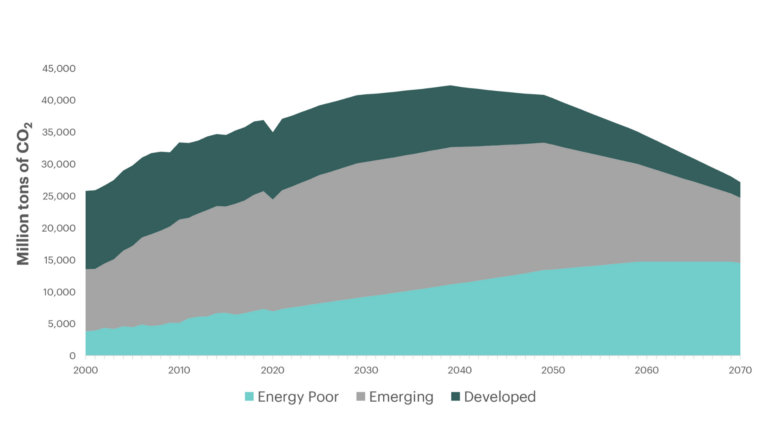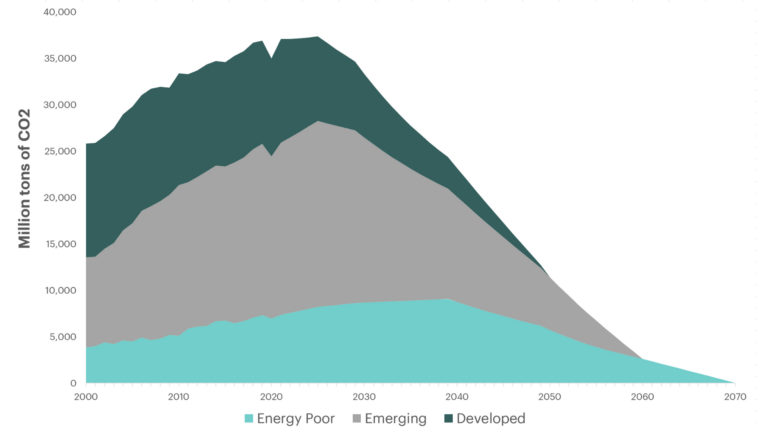The Climate Crisis and Our Work to Make Opportunity Universal and Sustainable
By Dr. Rajiv J Shah
This has been originally published by The Rockefeller Foundation
To make opportunity not only universal but also sustainable, the Foundation will, in the years ahead, put climate at the forefront of our programmatic, operational, and investment strategies.
Dr. Rajiv J Shah
As people fell ill, workplaces and schools shuttered, and warehouses and store shelves emptied, The Rockefeller Foundation did not stand still. Instead, they made a hard pivot to help the world respond to what we felt — and history has proven — was a singular event. To meet the moment, they rapidly repositioned their programs, reconceptualized their partnerships, revitalized their voice, and rethought how to support their grantees. They helped shape the American and global responses to the pandemic’s crises in ways that were not only impactful but illuminating, showing us what the Foundation can achieve by advancing the innovative work of our grantees with new resources, tools, and energy.
Unfortunately, Covid-19 is just one of many crises increasing the number and suffering of the poor, hungry, unhoused, under-educated, and infirm around the world. Climate change is already hurting the most vulnerable first and worst. Heat waves, droughts, floods, hurricanes, and wildfires are killing hundreds of thousands of people and reversing progress the Foundation and our partners have made in transforming food, clean energy, health, and economic systems. If the world continues with business as usual, and the planet grows warmer by 3 degrees or more, life will become unbearable for many of the people we serve.
Climate change poses a singular threat to humanity, and to The Rockefeller Foundation’s 109-year mission of promoting its well-being throughout the world. To meet their mission today, they must directly confront climate change, even as they redouble efforts in their traditional program areas: health, power, food, and equity.
Right now, the world is on a trajectory for catastrophe. Without a radical reversal, the earth’s temperature will eventually increase, according to their own analysis and other data, by about 3 degrees Celsius. As a result, humanity will experience stronger and more frequent extreme weather events. Ecosystems that feed and house people will be destroyed. Rising sea levels will flood and wreak havoc on communities.

With just 1.09 degrees Celsius of warming over the last century, the human toll is already devastatingly inequitable. The World Health Organization estimates climate change will soon cause 250,000 premature deaths per year. And the poorest are being hit hardest: over the last decade, floods, droughts, and storms have killed 15 times the number of people in low-income coastal countries as they have in wealthier coastal countries.

Today, it remains possible to stabilize global temperatures well below 2 degrees of warming. But such a scenario is only achievable if people around the world believe that a sustainable future will also afford them the chance to realize their full potential. They must believe that even as the planet is saved, their children and grandchildren will have opportunity — to live, work, and dream of better lives.
This year, the entire Foundation, from the Board of Trustees down, will be dedicated not only to our current work, but also to learning deeply about climate change and identifying what we can uniquely add to the global response.
Dr. Rajiv J Shah


